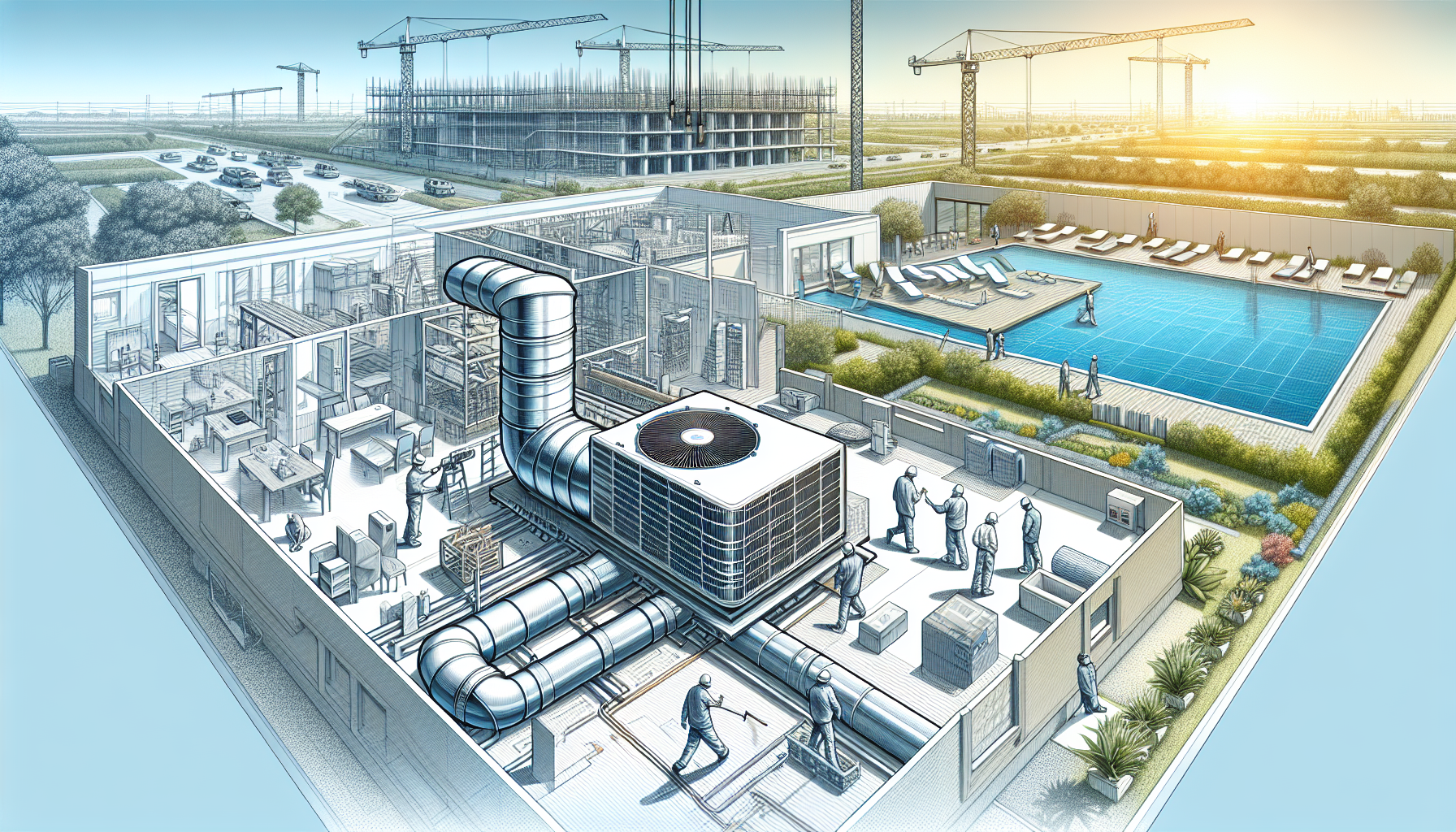When embarking on new property developments, ensuring an efficient HVAC system is essential. Proper installation can enhance comfort, reduce energy costs and increase property value. Understanding key aspects of HVAC systems will help you make informed decisions.
As a homeowner or home professional in Rochester, NY, you know the importance of a well-functioning HVAC system. Ensuring its correct installation is crucial for maintaining optimal indoor climate control. With these tips, you can guarantee that your property development projects are equipped with the best HVAC solutions.
Planning your HVAC system
The first step in ensuring an efficient HVAC system is proper planning. You need to assess the size and layout of the property to determine the appropriate capacity for the HVAC unit. Additionally, consider the local climate and seasonal variations as they impact heating and cooling demands. To discover how these factors play a crucial role in system performance and longevity just keep reading and you'll be thankful for the new information you have.
It's also vital to collaborate with experienced HVAC professionals during the planning phase. These experts can provide valuable insights into the latest technology and energy-efficient solutions available in the market. Engaging professionals early ensures that your system design meets all regulatory standards and delivers optimal performance.
When planning your HVAC system, it's crucial to consider future expansion or changes in property use. Designing a system with flexibility allows for easier modifications as needs evolve. This foresight can save significant time and money in the long run. Additionally, factor in the building's insulation quality and window efficiency, as these elements greatly impact HVAC performance. By addressing these aspects during the planning phase, you can ensure a more comprehensive and adaptable HVAC solution for your property development.
Choosing the Right Equipment
Selecting the right HVAC equipment is another critical aspect of installation. It's essential to choose units that are appropriately sized for your property to avoid issues like short cycling or insufficient heating and cooling. High-efficiency models might come with a higher upfront cost but offer significant savings on energy bills over time.
Consider looking into units with advanced features such as programmable thermostats, zoning capabilities and smart controls. These features not only enhance comfort but also provide greater control over energy consumption. Moreover, investing in high-quality air filters can improve indoor air quality by reducing allergens and pollutants.
When selecting HVAC equipment, it's important to consider the long-term maintenance requirements and availability of parts. Opt for brands known for their reliability and extensive service networks. This can significantly reduce downtime and repair costs over the system's lifespan. Additionally, explore hybrid systems that combine different heating and cooling technologies, such as heat pumps with gas furnaces. These systems can provide optimal efficiency by adapting to varying weather conditions, potentially offering substantial energy savings throughout the year.
Proper Installation Techniques
The installation process itself plays a significant role in the efficiency and longevity of your HVAC system. Ensure that ductwork is properly sealed and insulated to prevent air leaks, which can reduce system efficiency by up to 20%. Proper placement of outdoor units is equally important, they should be installed in shaded areas to reduce strain during hot weather.
It's also advisable to conduct thorough testing after installation to verify that all components are functioning correctly. Regular maintenance checks should be scheduled to identify potential issues early and keep the system running smoothly. Routine tasks like cleaning filters, checking refrigerant levels and inspecting electrical connections are essential for maintaining optimal performance.
Another critical aspect of proper HVAC installation is ensuring the correct refrigerant charge. Overcharging or undercharging can lead to reduced efficiency, increased energy consumption and potential system damage. It's also important to pay attention to the installation of condensate drain lines, ensuring proper slope and insulation to prevent water damage and mold growth. Furthermore, consider implementing a detailed documentation process during installation, including photographs and notes on specific configurations. This documentation can be invaluable for future maintenance and troubleshooting, saving time and reducing potential confusion for technicians down the line.
Energy Efficiency Considerations
Energy efficiency should always be a top priority when installing an HVAC system in new property developments. Look for units with high SEER (Seasonal Energy Efficiency Ratio) ratings, which indicate better energy performance. Additionally, integrating renewable energy sources like solar panels can further reduce environmental impact and operational costs.
Implementing smart home technology can also enhance energy efficiency by allowing homeowners to control their HVAC systems remotely. This level of control helps in adjusting settings based on occupancy patterns and weather conditions, leading to more efficient energy use. Ultimately, prioritizing energy efficiency not only benefits the environment but also provides long-term cost savings for homeowners.

